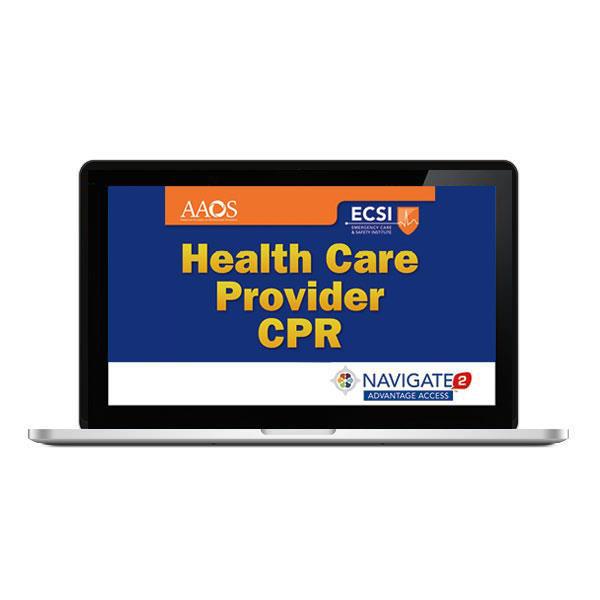
What is Norvir used to treat?
Ritonavir (brand name: Norvir) is a prescription medicine approved by the U.S. Food and Drug Administration (FDA) for the treatment of HIV infection in adults and children. Ritonavir is always used in combination with other HIV medicines.
What type of drug is Norvir?
Norvir is an antiviral medicine that prevents human immunodeficiency virus (HIV) from multiplying in your body. Norvir is used together with other antiviral medicines to treat HIV, the virus that can cause acquired immunodeficiency syndrome (AIDS). Norvir is not a cure for HIV or AIDS.
Who makes Norvir?
Ritonavir was first manufactured by AbbVie, under the trade name Norvir. During early trials it was known as ABT-538 and A-84,538. Generic versions of ritonavir are available.
What is the generic name for Norvir?
Ritonavir (Norvir) is a protease inhibitor and a booster medication. At high doses it stops the HIV virus from making copies of itself, and at low doses it raises the levels of other HIV ARVs.
How much does Norvir cost?
The cost for Norvir oral powder for reconstitution 100 mg is around $280 for a supply of 30 powder for reconstitution, depending on the pharmacy you visit. Prices are for cash paying customers only and are not valid with insurance plans.
What are the side effects of Norvir?
Diarrhea, nausea, vomiting, heartburn, stomach pain, dizziness, tiredness, weakness, changes in taste, or tingling/numbness of mouth area may occur. If any of these effects last or get worse, tell your doctor or pharmacist promptly.
When was Norvir first approved?
Approval Date: 6/29/1999.
What is a common concern when taking epzicom?
LIVER PROBLEMS Although rare, NRTIs including Epzicom can cause a life-threatening liver problem called lactic acidosis with hepatic steatosis. Most of the cases have been in women. Symptoms include appetite loss, stomach pain, muscle pain, fast and shallow breathing, extreme tiredness, and sudden weakness.
What does Paxlovid do for Covid?
How does Paxlovid work? Paxlovid is an antiviral therapy that consists of two separate medications packaged together. When you take your three-pill dose, two of those pills will be nirmatrelvir, which inhibits a key enzyme that the COVID virus requires in order to make functional virus particles.
What does valacyclovir cure?
Descriptions. Valacyclovir is used to treat herpes virus infections, including herpes labialis (also known as cold sores), herpes zoster (also known as shingles), and herpes simplex (also known as genital herpes) in adults.
Can ritonavir cause high blood pressure?
Conclusions: Treatment with lopinavir/ritonavir is significantly associated with elevated BP, an effect that appears to be mediated through an increase in BMI. Patients receiving atazanavir were least likely to develop elevated BP.
Is ritonavir the same as Norvir?
Ritonavir, also known as RTV (brand name Norvir), is a drug used as part of antiretroviral therapy (ART). The FDA approved ritonavir in 1996 as an antiretroviral drug (ARV) for people with HIV infection. Generic versions have been approved under PEPFAR.
What drug class is ritonavir?
Ritonavir is in a class of medications called protease inhibitors. It works by decreasing the amount of HIV in the blood.
What drug class is Reyataz?
Reyataz belongs to a class of drugs called HIV, Protease Inhibitors; Antiretroviral Agents.
What class is Prezista?
Prezista is a prescription medicine used to treat the symptoms of HIV Infection. Prezista may be used alone or with other medications. Prezista belongs to a class of drugs called HIV, Protease Inhibitors.
Which medication is classified as an Oxaborole antifungal select one?
Tavaborole belongs to a class of drugs known as oxaborole antifungals. This medication treats only fungal infections.
Important Note
The following information is intended to supplement, not substitute for, the expertise and judgment of your physician, pharmacist or other healthcare professional. It should not be construed to indicate that use of the drug is safe, appropriate, or effective for you. Consult your healthcare professional before using this drug.
Uses
This medication belongs to a class of drugs called protease inhibitors and is used, either alone or in combination with other drugs, to treat Human Immunodeficiency Virus (HIV) infection.
How To Use
This medication is taken twice daily by mouth, with meals if possible. A common side effect of nausea may be decreased by increasing the dose of ritonavir gradually over 5 days.
Side Effects
The most common side effects are weakness, loss of appetite, nausea, vomiting, diarrhea, altered taste, stomach pain and numbness or tingling of mouth, hands or feet. Less common side effects include blurred vision, dizziness, headache, loss of coordination, muscle or joint pain and drowsiness. Inform your doctor if these should persist or worsen.
Precautions
Before taking this drug tell your doctor if you have: liver or kidney disease, diabetes, blood disorders, allergies (especially drug allergies). Tobacco smoking may decrease the effects of this drug. This medication should be used during pregnancy only if clearly needed. Discuss the risks and benefits with your doctor.
Drug Interactions
Before you take this drug, tell your doctor of all the drugs you take including prescription and nonprescription medications especially of: amiodarone, astemizole, bepridil, bupropion, cisapride, clozapine, encainide, flecainide, meperidine, piroxicam, propafenone, propoxyphene, quinidine, rifabutin, terfenadine, zolpidem, benzodiazepines (e.g., diazepam, chlordiazepoxide), clarithromycin, rifampin, drugs that can harm the kidneys (e.g., gentamicin, amphotericin), propofol, St John's wort, other protease inhibitors (e.g., saquinavir).
Overdose
If overdose is suspected, contact your local poison control center or emergency room immediately. Symptoms of overdose may include change in amount of urine; or numbness or tingling in the arms, hands, legs, or feet.
Important Note
The following information is intended to supplement, not substitute for, the expertise and judgment of your physician, pharmacist or other healthcare professional. It should not be construed to indicate that use of the drug is safe, appropriate, or effective for you. Consult your healthcare professional before using this drug.
Uses
This medication belongs to a class of drugs called protease inhibitors and is used, either alone or in combination with other drugs, to treat human immunodeficiency virus (HIV) infection.
How To Use
Shake well before each dosing. Take twice daily by mouth with meals if possible. A common side effect of nausea may be decreased by increasing the dose of ritonavir gradually over 5 days.
Side Effects
The most common side effects are weakness, loss of appetite, nausea, vomiting, diarrhea, altered taste, stomach pain; or numbness or tingling of mouth, hands, or feet. Less common side effects include blurred vision, dizziness, headache, loss of coordination; muscle or joint pain; or drowsiness. Inform your doctor if these should persist or worsen.
Precautions
Before taking this drug tell your doctor of previous illnesses, especially: liver disease, kidney disease, diabetes, blood disorders. Tobacco smoking may decrease the effects of this drug. Ritonavir solution contains alcohol. This medication should be used during pregnancy only if clearly needed. Discuss the risks and benefits with your doctor.
Drug Interactions
Before you take this drug, tell your doctor of all the drugs you take including prescription and nonprescription medications especially: amiodarone, astemizole, bepridil, bupropion, cisapride, clozapine, disulfiram, encainide, flecainide, meperidine, metronidazole, piroxicam, propafenone, propoxyphene, quinidine, rifabutin, terfenadine, zolpidem, benzodiazepines (e.g., diazepam, chlordiazepoxide), clarithromycin, rifampin, drugs that can harm the kidneys (e.g., gentamicin, amphotericin), St John's wort, other protease inhibitors (e.g., saquinavir).
Overdose
If overdose is suspected, contact your local poison control center or emergency room immediately. Symptoms of overdose may include change in amount of urine; or numbness or tingling in the arms, hands, legs, or feet.

Important Note
- The following information is intended to supplement, not substitute for, the expertise and judgment of your physician, pharmacist or other healthcare professional. It should not be construed to indicate that use of the drug is safe, appropriate, or effective for you. Consult your healthcare professional before using this drug. RITONAVIR CAPSULE - O...
Uses
- This medication belongs to a class of drugs called protease inhibitors and is used, either alone or in combination with other drugs, to treat Human Immunodeficiency Virus (HIV) infection.
How to Use
- This medication is taken twice daily by mouth, with meals if possible. A common side effect of nausea may be decreased by increasing the dose of ritonavir gradually over 5 days. In patients beginning combination therapy with other HIV medications, nausea can be decreased by starting the second medication between 5 and 14 days after therapy with ritonavir has begun. Do not inc…
Side Effects
- The most common side effects are weakness, loss of appetite, nausea, vomiting, diarrhea, altered taste, stomach pain and numbness or tingling of mouth, hands or feet. Less common side effects include blurred vision, dizziness, headache, loss of coordination, muscle or joint pain and drowsiness. Inform your doctor if these should persist or worsen. Inform your doctor immediatel…
Precautions
- Before taking this drug tell your doctor if you have: liver or kidney disease, diabetes, blood disorders, allergies (especially drug allergies). Tobacco smoking may decrease the effects of this drug. This medication should be used during pregnancy only if clearly needed. Discuss the risks and benefits with your doctor. It is not known if this medication appears in breast milk. Because …
Drug Interactions
- Before you take this drug, tell your doctor of all the drugs you take including prescription and nonprescription medications especially of: amiodarone, astemizole, bepridil, bupropion, cisapride, clozapine, encainide, flecainide, meperidine, piroxicam, propafenone, propoxyphene, quinidine, rifabutin, terfenadine, zolpidem, benzodiazepines (e.g., diazepam, chlordiazepoxide), clarithromy…
Overdose
- If overdose is suspected, contact your local poison control center or emergency room immediately. Symptoms of overdose may include change in amount of urine; or numbness or tingling in the arms, hands, legs, or feet.
Notes
- This medication does not cure HIV. Patients treated with ritonavir may continue to acquire "opportunistic" infections associated with HIV. This medication also does not prevent transmission of HIV to others through sexual contact or blood.
Missed Dose
- If you miss a dose, use it as soon as you remember. If it is within 2 hours of the next dose, skip the missed dose and resume your usual dosing schedule. It is important not to miss doses of this drug.
Storage
- Refrigeration between 36 to 46 degrees F (2 to 8 C) is recommended; however, the capsules may be kept at a room temperature not to exceed 77 degrees F (25 C) for up to 30 days. Do not expose the medication to heat or sunlight.